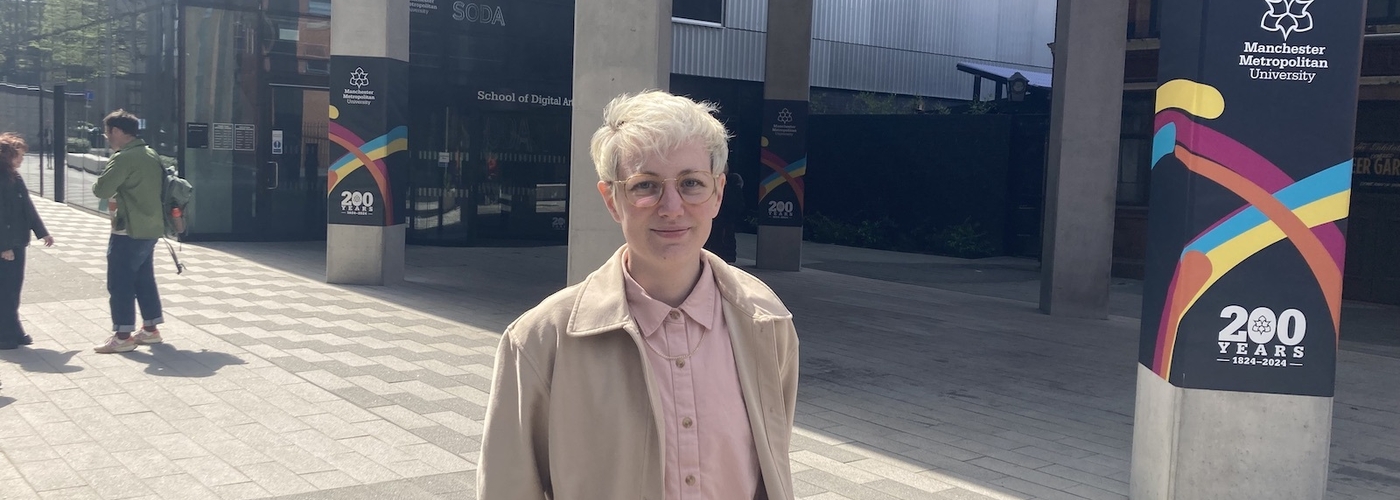David Adamson talks to Loran Dunn about getting into filmmaking and the release of her award-winning film
Today (17 May) sees the UK release of Hoard, the directorial debut from writer Luna Carmoon. It tells a story in two parts of young Maria living with her mother in a homemade world of scavenged goods, then ten years later - now with a foster mother - the effect this upbringing has had on her.
Add to that the arrival of Michael ('Stranger Things' star Joseph Quinn) and we have what The Guardian's Peter Bradshaw described as "a haunting study of thwarted sexuality" akin to Ian McEwan's The Cement Garden.
David Adamson spoke with the film's producer, and Senior Lecturer in Filmmaking at Manchester Metropolitan University's School of Digital Arts (SODA), Loran Dunn.
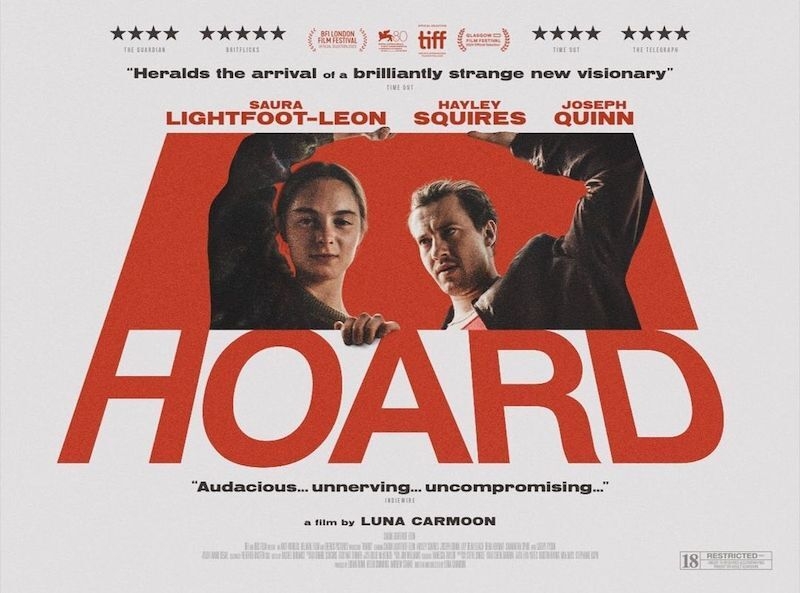
DAVID (D): So before we talk about your film, Hoard, tell me about how you got into filmmaking.
LORAN (L): I graduated from the School of Art here in 2010, and then I was working freelance on productions like BBC and Sky dramas, but all the time making my own short films. Then in 2014 I made a new year's resolution to be more deluded. I felt like when you saw people winning at award ceremonies or who were really successful, they'd say things like 'I always knew I was destined'. So I thought, well, I'm going to allow myself to be deluded enough to believe that it might happen and I might be able to set up my own business and I might be able to make feature films.
When you're working freelance for places like the BBC it's great, but it's a lot of hard work for something that isn't yours at the end of it, and I was really missing that creative ownership, I guess. So I quit all of my freelance work, set up my own company (Delaval Film) and managed to get some funding from what was Creative England and is now creative UK. Towards the end of that year I was lucky enough to be given the BFI vision Award, which is an award given to emerging companies they think demonstrate risk taking and ambition.
So they put quite a big investment into my company, which then allowed me to do things like hire an assistant and have an office. Then I made my first feature, A Deal With The Universe, which was out in cinemas in 2018.
D: It's interesting that they give those grants to stuff that's ambitious, and maybe a little bit risky, rather than something that they can ensure is going to pay them back in one way or another.
L: That's what's amazing about the BFI is that they're there to support projects that wouldn't normally be made in a commercial marketplace. They're there to support filmmakers as artists and recognise the cultural value of film. That it's more than just generating a big box office revenue, that actually it can demonstrate a real power to change perspectives and educate and inspire and have that kind of cultural value. So we're very lucky to have them.
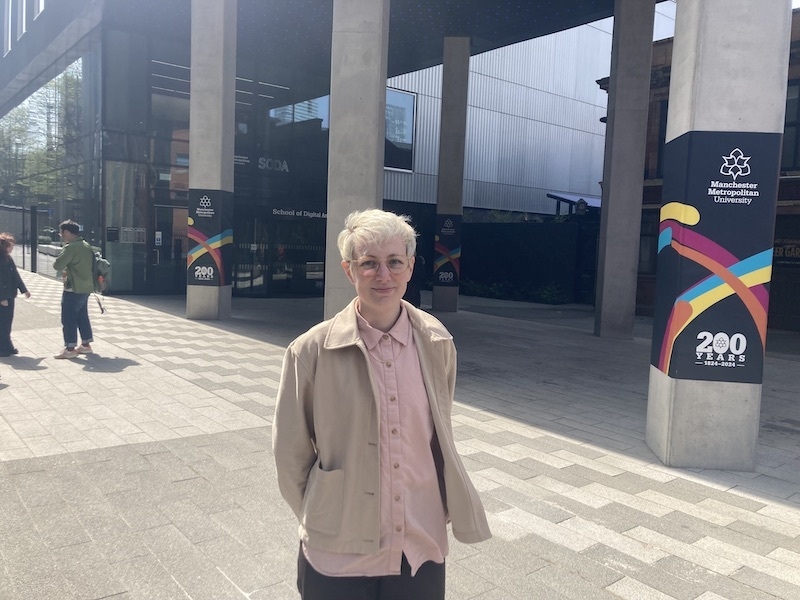
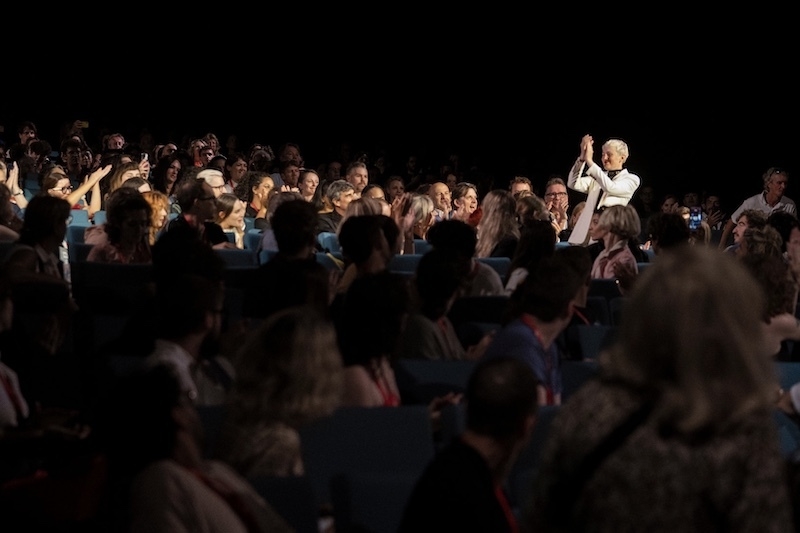
D: When you said that you decided to be more delusional, that's interesting because it seems like this sort of work requires quite a lot of what you'd maybe call magical thinking; creating something, pushing it out into the world and then just praying and hoping that it comes off, really.
L: That's a really good way of thinking about it, and particularly my job as a producer. You have to take on a project before anything really exists, sometimes not even a script. It's just a writer or writer/director who has an idea and you then have to take that to financiers, sometimes asking them for millions of pounds, and a crew and cast and you bring this whole thing together that doesn't exist and you have to sort of inspire this whole range of people to buy into this thing that doesn't exist yet.
It's a kind of superpower that we have as producer, it's kind of what the job is; you've always got to be the biggest champion of what that film is, and you've got to have the vision of what it could become. And then you've got to get other people to buy into that idea and that vision with you and really inspire them to come on the journey. Because again, it's such a saturated market; everybody would love to make a feature film. Everybody's got an idea for a feature film. But taking an idea and turning it into actuality is something completely different.
D: I imagine most people probably don't have much of an understanding of what a producer really is. They may think, as I have in the past, the producer is the person who holds the purse strings and divvies the money out. Whereas it seems like in the earliest stages, your job is sort of conceptual; to understand the overall concepts of something and sell an idea.
L: I think particularly for independent producers. I'm very creatively involved in what that project is. So yes there's the Hollywood producer throwing cash at something that they know is going to make money but for me it's about discovering talent. So it's about going out there and looking for people who have brilliant stories to tell and then having the vision of how you take that and develop that idea into the best version of what it can be.
It's an intangible thing for most people to understand because it's not immediately visible on the screen. But when you think about the Oscars, there's a reason why the producer goes to collect Best Picture. Any film that gets made was because a producer has said, 'that's really interesting. That's something that deserves to be made'. Yeah. So it's about the belief and vision around an idea and turning it into something that people want to watch.
D: Plus writers are famously awful at getting their own ideas off the ground aren't they?
L: I don't blame them, it's so hard.
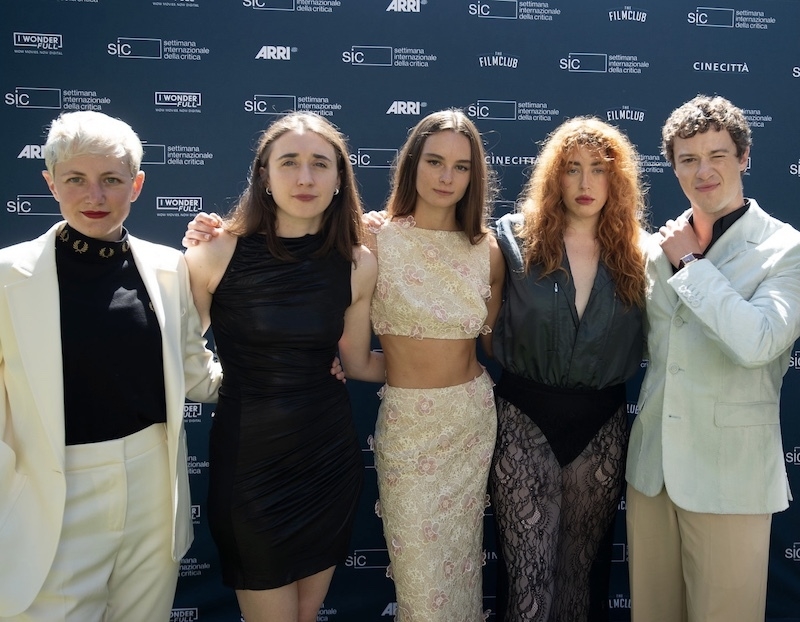
D: So how is it that you came to be involved in Hoard, this project with Luna Carmoon?
L: In 2017 I was producing a scheme for Sky and Creative England called 'Shortflix'. The idea was that they had a pot of money and they wanted to invest it in new talent who hadn't had any kind of traditional roots into filmmaking, so hadn't been to university, didn't know somebody in the industry. There are people who were traditionally excluded from filmmaking and wouldn't know how to get in.
Luna was one of the filmmakers that came through that programme, and at the point that she came into that programme she hadn't ever made a film before, but you could see she was somebody who's got a really interesting creative mind. Plus she was so cinema literate. She hadn't been to university, but instead she'd watched four films a day every day for years.
So we really wanted to give her a chance, and the script she wrote was kind of odd, and not in the traditional script writing format. Sky were very nervous about what it was going to be, but then as soon as she was on set, she knew exactly what it was she wanted to get, and that film went to Sundance - it's called Nosebleed. And we've been working together since then, basically.
D: And then with Hoard you've had this success together. Casting Joseph Quinn, who probably can't walk down the street these days, winning four awards at Venice International Film Festival, and of course getting four stars from Peter Bradshaw.
L: It's so funny because when we made the film, we were like 'Peter Bradshaw is gonna hate this'. We were really nervous, saying 'When it goes to The Guardian, make sure it doesn't go to Peter Bradshaw'. And then he loved it, which we weren't expecting. He totally got it.
Joseph's gone stratospheric, and rightly so because he's incredible. But I think also his performance in this film is really exceptional and I sort of hope that we've helped play a part in that for him because indie films allow actors a chance to explore their craft. I think what he shows in Hoard is that he really demonstrates he's an actor of real calibre.
We did a screening at BAFTA recently and Luna and I were talking about how the thing that lasts forever when you're making a film is the experience of making it. I think it's really special to have a longstanding relationship between a producer and a writer-director like that over a long period of time. It feels like family. I'm incredibly proud of what she's achieved and what we've achieved together. It's hard to describe but I think I'm just very grateful that that initial scheme was there to allow someone like Luna into the industry, because how would she have ever found a way in without that?
Hoard is now in UK cinemas
If you liked this you may also like...
Confidential Safari #2: Tequila, Wooden Spoons and a Well-earned Million
An exclusive screening of new Channel 4 drama The Gathering
Get the latest news to your inbox
Get the latest food & drink news and exclusive offers by email by signing up to our mailing list. This is one of the ways that Confidentials remains free to our readers and by signing up you help support our high quality, impartial and knowledgable writers. Thank you!

Join our WhatsApp group
You can also get regular updates on news, exclusives and offers by joining the Manchester Confidential WhatsApp group.






